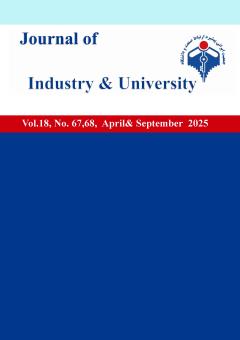An Analysis of Academic Entepreneurship in The Age of Digitalization Using The Meta-Synthesis Method
Subject Areas : Special
Mohsen Mohammadi Khyareh
1
![]() ,
Amineh Zivari
2
,
Amineh Zivari
2
![]()
1 - Associate Professor of Economics, Department of Administrative and Economic Sciences, Gonbad Kavous University, Gonbad Kavous, Iran
2 - PhD student in Entrepreneurship, Faculty of Entrepreneurship, University of Tehran, Tehran, Iran
Keywords: Academic Entrepreneurship, Digital Entrepreneurship, Digital Transformation, Meta-Synthesis, Technology-Organization-Environment (TOE) Framework,
Abstract :
This paper aims to provide a deep, multi-dimensional analysis of the "digital academic entrepreneurship" phenomenon within Iran's unique economic and institutional context. While global literature is rapidly exploring the intersection of digital transformation and academic entrepreneurship, a coherent understanding of the dimensions, drivers, barriers, and consequences of this phenomenon in a developing and sanctioned economy like Iran is notably absent. Adopting a qualitative, interpretive approach, this research utilizes the seven-step meta-synthesis methodology of Sandelowski and Barroso (2007) to systematically analyze and synthesize findings from prior studies. Through a comprehensive search of national and international databases and a rigorous screening process, a final selection of 32 relevant articles was chosen as the data for this study. The synthesized findings are categorized into three main themes derived from the Technology-Organization-Environment (TOE) theoretical framework: 1) Technological factors, including the dual role of digital platforms and the imperative for artificial intelligence fluency; 2) Organizational factors, focusing on the challenges of institutional adaptation in universities, the emergence of novel support structures, and the necessity of digital leadership; and 3) Environmental factors, which address the contradictory role of government policymaking, the profound impact of economic sanctions, and the emerging entrepreneurial culture among students. The results indicate that the success of digital academic entrepreneurship in Iran is not merely a technological issue but the product of a complex interplay between technological readiness, dynamic capabilities and structural transformation within universities, and an enabling environmental ecosystem. By presenting an integrated conceptual framework, this paper offers specific policy implications for academic leaders and national policymakers to strengthen the digital entrepreneurship ecosystem in the country
